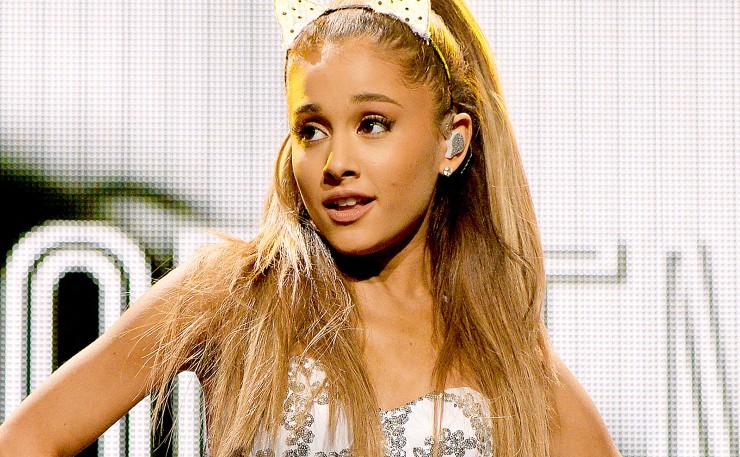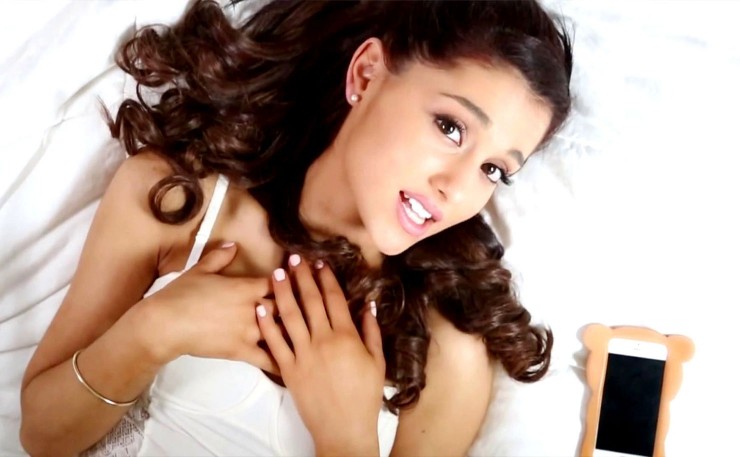Society has strong views on paedophilia, but, strangely, we’re not so concerned about the way we sexualise children, writes Dr Mark Manolopoulos.
One of the strangest things about contemporary society is how unaware or unconcerned we seem to be of stark social contradictions. For example, we don’t seem to be conscious of, or troubled by, the irreconcilable tension between the ideology of “endless” economic growth and the reality of planetary limits.
Another glaring contradiction lies between the unimpeded hyper-sexualisation of girls, and the outspoken stance against paedophilia. How can these two competing cultural forces co-exist? How do we allow ourselves to live within such a contradiction – something that is illogical, unethical, and destructive? And is there any way out of this deadlock?
Before introducing any constructive resolution to this social tension, a brief exposition is warranted. I should point out from the very beginning that “sexualisation” as such isn’t necessarily problematic – indeed, as Freud taught us (a lesson which nonetheless remains confronting for a society that over-emphasizes childhood “innocence”), a child is from the very beginning a sexual being, so sexualisation in itself isn’t abnormal or perverse.
But any normal process of sexualisation can be overlaid with more problematic and downright devious forms of sexualisation – I therefore differentiate the former from the latter by adding the qualifier “hyper-” to denote this disturbing variant of sexualisation.
In recent years, an increasing number of researchers have begun exploring this phenomenon). In this regard, Lesley-Anne Ey’s doctoral dissertation identifies ways in which various dominant social spheres, such as the clothing, advertising, and music industries may contribute to hyper-sexualisation: manufacturers create provocative clothing for young girls, advertisers promote these products, and retailers sell them, while music videos represent popular female artists in excessively sexualised terms, acting as somewhat dubious influences for girls’ identity formation.
Such socio-economic forces are quite reasonably deemed to contribute to the hyper-sexualisation of children. Whether they are in fact influential remains a contested question, and I shall not enter this debate here for two reasons.
First, existing data may remain open to question, so further research appears to be required. But perhaps more importantly, basing any argument on empirical evidence somewhat obscures or distracts us from the issue’s ethical dimension (akin to the way the climate-change debate almost completely suspends ethical judgement regarding excessive pollution, focusing instead on whether anthropogenic climate change is actually taking place).
In other words, the fact that certain clothing, advertising, and music industries participate in practices that objectify females, reduce and restrict their value within the limits of sex appeal, and successfully promote unrealistic and dangerous standards of “beauty” is just plain wrong.
Paedophilia, on the other hand, is addressed by society in strongly ethical terms: it is strictly denounced and prohibited. The backlash over paedophilic priests is indicative of our justified intolerance. And yet, while society rightly abhors, prohibits, and punishes this practice, it hypocritically permits practices that probably foster hyper-sexualisation.
This social contradiction is perhaps perfectly personified in the figure of Ariana Grande, a 22-year-old singer who was arguably 2014’s breakout global superstar.

Grande’s naturally youthful look (big brown eyes, tiny frame, etc) is accentuated by her carefully constructed image: her trademark ponytail and fashion style (short skirts, knee-high socks/boots, etc) contribute to a seductive adolescent aesthetic) – akin to Britney Spears as the sexy schoolgirl.
Ariana has also progressively aimed at a somewhat raunchier persona as a live performer, incorporating the now typical, and expected, gyrating dance moves ubiquitous in popular music culture. What we end up with is a kind of “Lolita” figure.
While the mainstream press focuses much attention on Ariana, I have been unable to locate measured criticism in this regard. Perhaps the most incisive pithy remark that I have thus far encountered is by someone who offered the following insensitive but nonetheless poignant contribution during a Twitter Q&A session with Grande: “You’re ridiculously sexualized and yet you look like a 12 year old girl. How do you feel about this?”.
You’re ridiculously sexualized and yet you look like a 12 year old girl. How do you feel about this? #AskArianaGrande
— F-Stop Fitzgerald (@Jwine05) August 28, 2014
Unsurprisingly, Grande did not respond to the question (presumably due to its offensiveness or because she was obviously bombarded by countless other queries), but I, too, am curious about how Grande herself feels, given that she appears to have a say in the construction of her own image.
But even more significantly, what do we think about her representation?
Whenever individuals occasionally comment on this particular issue (often without the requisite nuance or aplomb), they usually risk being met with a barrage of criticism, including Ariana’s devoted fans.
Mayim Bialik (who plays a character on The Big Bang Theory) was on the receiving end of cyber-retaliation for her remarks and even the outspoken Bette Midler somewhat back-tracked from her typically coarse but rather accurate comments.
Another explanation for society’s deafening silence may be that any criticism risks being mistakenly labelled conservative or old-fashioned – even perhaps anti-feminist.
Despite such barriers, a reasoned critique of Grande’s image is certainly warranted – indeed, demanded, particularly as her fan-base is mostly made up of impressionable “tweens” and teens in an age of hyper-sexualisation and anti-paedophilia.
Of course, while Ariana Grande personifies the acceptance and even promotion of hyper-sexualisation, she’s obviously not one of its core drivers. What, then, is the solution to society’s hypocritical stance in simultaneously permitting hyper-sexualisation and prohibiting paedophilia?
The solution is obvious, but its enunciation and enactment have more to do with courage than cognition: we must be driven by the ethical imperative to ban socio-economic practices that foster hyper-sexualisation, even at the risk of being mistakenly categorised; we must emphatically insist upon the fact that females (and males, for that matter) are not reducible to their sexual attractiveness, that we are more than and otherwise than our sexualness, that we reject contemporary standards of beauty.
What this means, ultimately, is not just banning practices that promote hyper-sexualisation but transforming the institutions and systems that sustain them and profit from them.
Donate To New Matilda
New Matilda is a small, independent media outlet. We survive through reader contributions, and never losing a lawsuit. If you got something from this article, giving something back helps us to continue speaking truth to power. Every little bit counts.




